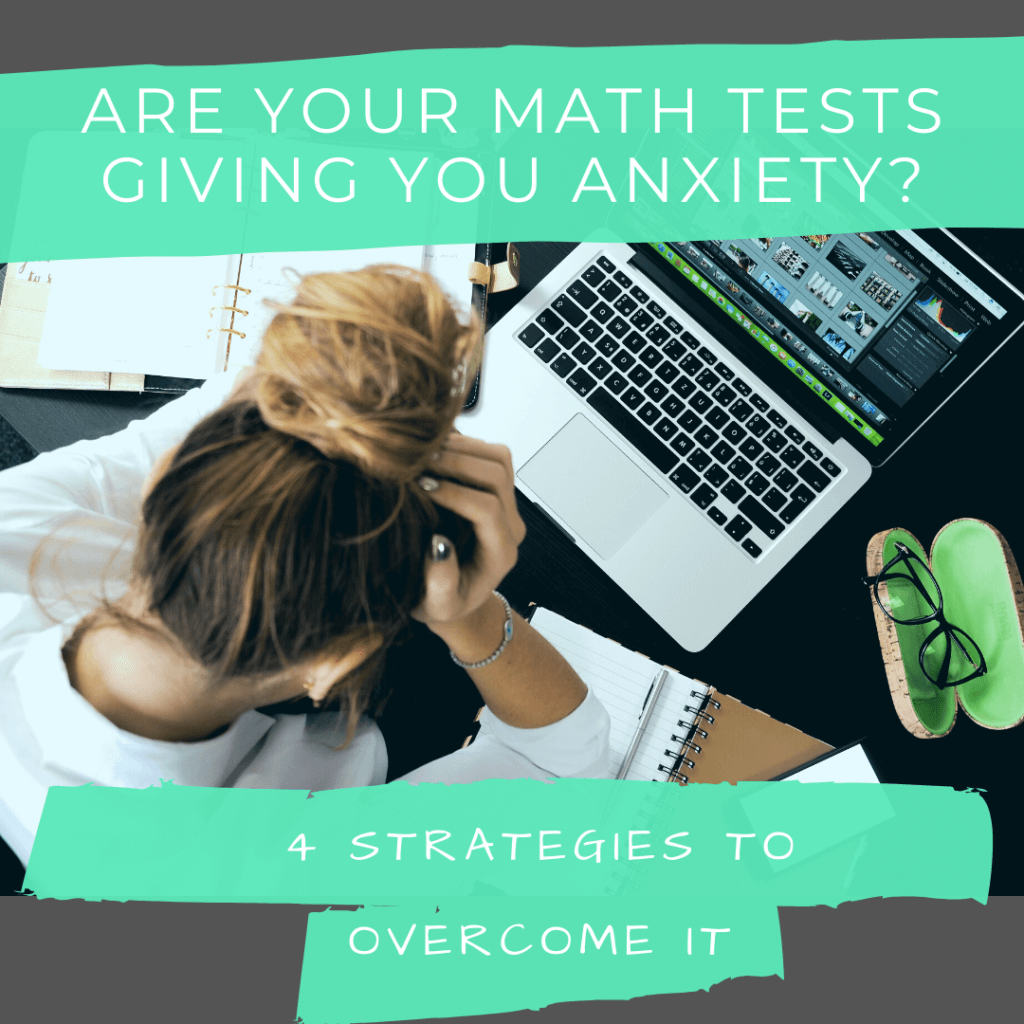Have you [or your child] ever felt prepared for a test, but once you start, you just draw a blank? You start tapping your pencil or bouncing your leg. As you look around the room, you struggle to dig into your memory to remember that one example your math teacher went over just a couple days earlier. A few minutes later, one of your peers turns in their exam and you start to panic.
As an experienced math tutor in Colorado Springs, I know that every student’s situation is different. In some cases, understanding math concepts isn’t the only obstacle. Oftentimes, test anxiety can be the difference between success and needing to try again.
As a 2019 graduate of the University of Colorado Colorado Springs, I am no stranger to the life of a student. Costa Comprehensive Tutoring fosters a safe environment where students can be comfortable making mistakes and taking risks. Mastering the math concepts is a struggle in itself, so being open with about your test anxiety is the best way to overcome it.
If you think you [or your child] is experiencing test anxiety, continue reading to learn what test anxiety is, how it can be affecting your math performance, and steps you can take to reduce its effects on your test taking abilities.

What is Test Anxiety?
Test anxiety is a form of performance anxiety. This anxiety is due to the pressure of an activity in which one is participating. There are various things that can cause test anxiety. Common causes, according to the Anxiety and Depression Association of America, are fear of failure, lack of preparation, and poor test history.
The feeling of test anxiety is also different for everyone and causes various reactions including:
- Stomachaches
- Headaches
- Perspiration
- Shakes
Some students with severe anxieties may even feel light-headed or nauseous.
Because it is common for students to be under pressure to perform well on math tests, it isn’t surprising that students experience test anxiety.
How Test Anxiety Affects Students’ Math Performance
When a student has test anxiety, the actual math is no longer at the forefront of the student’s mind. Instead, students will often be in a state of duress. This can appear in the form of distracting, negative thoughts, or an overload of stress.
The negative thoughts can cause students to doubt their answers and overall mathematical capabilities. They end up thinking about everything that can go wrong, and in most cases, lose focus of the actual test. The internal battle inhibits the brain from remembering the correct way to complete the math problems.
Additionally, the stress of the math test increases a student’s adrenaline. All the symptoms that come with test anxiety are implications of this hormone being released in large doses. If the student cannot get the stress under control, the “fight” or “flight” instincts take over, further diminishing the student’s ability to focus on the math they know how to do.
How To Cope with Test Anxiety
If you have test anxiety, it is important to find ways to overcome it, so you can focus on the problems at hand.
- Keep a Positive Mindset – When your math tests are making you anxious, it is important to keep your thoughts under control. If you’re having thoughts like “I always do poorly on tests,” or “The math problems on this test are going to be too hard for me to figure out,” you need to try to override them with positive thoughts. Oftentimes, having a short mantra, such as “I can and I will,” can help overcome your anxiety, as you’re practicing positive self-talk. According to MayoClinic, positive thinking and self-talk has many health benefits, one of which is being better at coping in times of stress.
- Ask for Help – It is important to know that you don’t have to go through this alone. There are many resources that can help you if your test anxiety is really starting to interfere with your math performance. Teachers and tutors can help you study and prepare for your math test. Getting the help needed to solidify certain math concepts will build your confidence, allowing you to feel calmer while taking a test. Counselors are a great resource if your test anxiety persists even after trying other strategies.
- Prepare Enough, but Not Too Much – A lot of students think that the more time they put in studying, the better their test score will be, so they end up cramming a couple days or even the night before a math test. Cramming isn’t the best option, as students generally lose sleep when they choose to go this route. Not getting enough sleep hinders a student’s thinking the next day. Additionally, cramming isn’t an effective way to study, especially in the long-term. When you cram for a test, the information is stored in your short-term memory, so it is difficult to recall during a test. Overall, understanding the advantages of quality versus quantity is essential when preparing for a math test. Having ways to study and prepare that are effective for the student makes all the difference (Eventually link to study tips blog).
- Have a Balance – Anxiety tends to build if you dwell on it. If you find yourself constantly thinking about your math test, make time for a break to do something relaxing. Of course, this doesn’t mean giving up on study completely, but allow yourself some time to focus on something else. Some great ways to relieve stress include exercising and spending time with friends and family.
Just like learning math, figuring out how to control your test anxiety takes some practice. It can be frustrating to find a process that works for you, but give it time and don’t get discouraged.
Looking for help with your test anxiety? Being an experienced math tutor, I understand the added stress that test anxiety can cause, and I am here to help you overcome this obstacle. Call or schedule an appointment with Costa Comprehensive Tutoring, or feel free to reach out with any questions.



